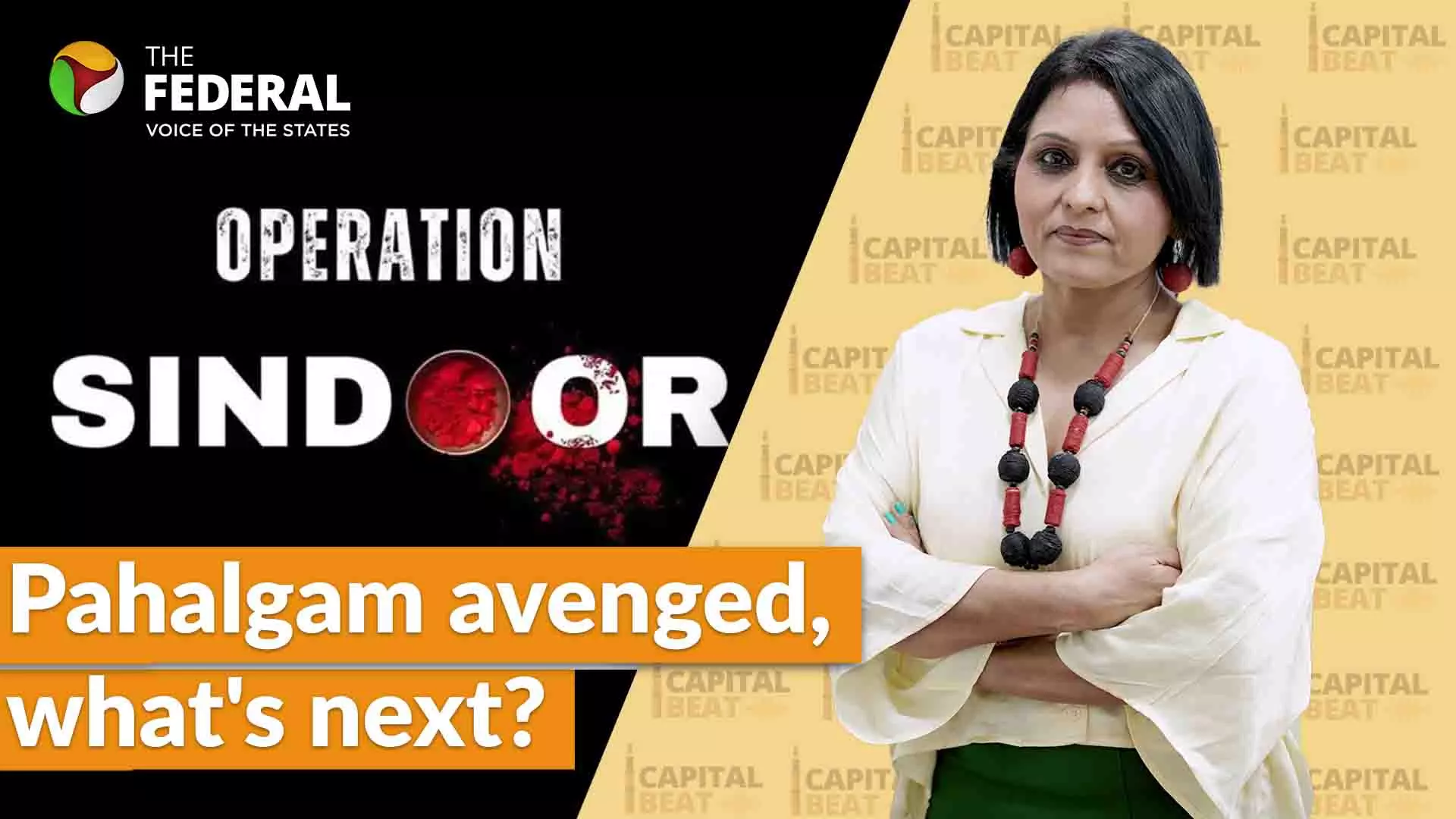
The sharp insights of the panel of experts painted a clear picture of the military, diplomatic, and geopolitical implications of India’s most expansive cross-border strike yet.
Operation Sindoor: 'New phase in India’s response to cross-border terrorism'
The coming days will be critical, whether Pakistan chooses a symbolic or substantive response will shape the trajectory of India-Pak relations in the near future

In this gripping episode of Capital Beat, senior journalists and defence experts came together to unpack India’s Operation Sindoor, a series of precision missile strikes launched at nine terror sites in Pakistan and Pakistan-occupied Kashmir (PoK), including Muridke and Bahawalpur. The panel featured General Ashok Mehta (retd), Brigadier Ajit Apte, and international affairs expert Dr Aftab Kamal Pasha. Their sharp insights painted a clear picture of the military, diplomatic, and geopolitical implications of India’s most expansive cross-border strike yet.
Strategic escalation
General Ashok Mehta opened the discussion by outlining how Operation Sindoor marks a new phase in India’s response to cross-border terrorism. Tracing the history from the Uri surgical strikes to Balakot, Mehta noted that this time India escalated not just in depth but in the range of targets, hitting deep inside Pakistan’s Punjab, a first in its military history.
Also Read: Operation Sindoor | Tarun Upadhyay interview: What's the situation at LoC?
Mehta emphasised that these strikes went beyond previous operations by integrating political, economic, and kinetic measures, such as leveraging the Indus Water Treaty. However, he cautioned that while the strikes were successful, details on the exact combination of missile and air force components used remain undisclosed.
“The powerful message is that India will respond effectively whenever there is cross-border terrorism,” he stated.
International backing
Turning to the diplomatic front, Dr Aftab Kamal Pasha underlined the significance of international backing, particularly from the United States. He highlighted how Washington urged Pakistan not to escalate matters and acknowledged India’s right to act against terror. Pasha also pointed to admissions by Pakistani leaders, including Maulana Masood Azhar, that key terrorist figures were among those killed.
Importantly, Pasha noted that while Pakistan may have China, Turkey, and other supporters, its ability to sustain military conflict against India is limited.
Also Read: 12 dead in J&K after Pakistan Army's shelling after Operation Sindoor
“Diplomacy is Pakistan’s only real option,” he said, underlining how differences between Pakistan’s civilian and military leadership further complicate Islamabad’s response.
Calibrated mix
Brigadier Ajit Apte offered critical insights into India’s military posture. He underscored the fact that India was not just reacting impulsively but had anticipated Pakistan’s unpredictable behavior, organising nationwide mock drills and shoring up civil defences. Apte pointed out that the inclusion of women officers like Colonel Sofiya Qureshi (Army) and Wing Commander Vyomika Singh (Air Force) at the official press briefing marked a historic moment, reflecting the inclusivity and professionalism of India’s armed forces.
Also Read: 10 effects of Op Sindoor: Flights cancelled, shadow on IPL match, and more
He stressed that India’s strikes were a calibrated mix of stand-off missiles and air-delivered munitions, demonstrating the country’s resolve to eliminate terrorist infrastructure without targetting Pakistani military or civilian assets.
Apte added, “The message is clear: India will respond decisively to any future provocations.”
'Game far from over'
General Mehta cautioned, however, that the game is far from over. He predicted that Pakistan’s National Security Committee, which has authorised a military response, will feel pressured to retaliate. Yet Pakistan faces a dilemma: what target to strike and how to avoid triggering full-scale escalation. Notably, India has prepared layered air defences, including S-400 systems, making any Pakistani counterstrike fraught with risk.
Also Read: Pakistan discusses next course; PM Sharif to address parliament
Brigadier Apte added that while nuclear thresholds are unlikely to be crossed, the situation remains tense, with Pakistan historically favouring military targets to match India’s precision strikes. He stressed the need for India to stay vigilant, as even a weaker adversary can deliver a damaging blow if complacency sets in.
Civilian readiness
Both military leaders underscored the importance of civilian awareness.
Apte emphasised that this is not a TV spectacle but a real and evolving security challenge. Civilian populations must support the armed forces and understand the seriousness of the moment. Schools have been shut, bunkers are being cleared, and government buildings are on standby to accommodate displaced people if the escalation continues.
Also Read: Operation Sindoor: Mock drills conducted in various cities across India
Looking ahead
As the panel concluded, all experts agreed that while India has successfully delivered a powerful message through Operation Sindoor, the coming days will be critical. Whether Pakistan chooses a symbolic or substantive response will shape the trajectory of India-Pakistan relations in the near future.
The episode closed with a sobering reminder from General Mehta, “This is only one more chapter in the long history of Indo-Pakistani tensions. The challenge now is to manage the aftermath without slipping into uncontrolled escalation.”
(The content above has been generated using a fine-tuned AI model. To ensure accuracy, quality, and editorial integrity, we employ a Human-In-The-Loop (HITL) process. While AI assists in creating the initial draft, our experienced editorial team carefully reviews, edits, and refines the content before publication. At The Federal, we combine the efficiency of AI with the expertise of human editors to deliver reliable and insightful journalism.)

